- Best overall LastPass alternative: 1Password
- Best for large businesses: Keeper
- Best for multi-platform integration and secure sharing: Dashlane
- Best free, open-source password manager: Bitwarden
- Best for user-friendly design and cross-browser compatibility: NordPass
- Best for enterprise password security: ManageEngine Password Manager Pro
Software Spotlight: Keeper
Keeper is a zero-trust password manager that offers robust password storage and collaboration capabilities for both small and large businesses alike.
LastPass is a popular choice for managing passwords and sensitive information for individuals and businesses. However, its recent security breaches have raised concerns.
SEE: 5 Best Free Password Managers for 2024 (TechRepublic)
While the tool still enjoys global patronage, it’s not a bad idea to consider other password managers that can serve as worthy alternatives to LastPass. Here, we look at the top LastPass alternatives and competitors for 2024.
Featured Partners
Top LastPass alternatives and competitors: Feature comparison
| Star rating | Encryption | Two-factor authentication | Cross-platform support | Password autofill | Starting price | |
|---|---|---|---|---|---|---|
| 1Password | 4.3 out of 5 stars | AES-256-bit | Yes | Windows, macOS, iOS, Android | Yes | $2.99/month |
| Keeper | 4.4 out of 5 stars | AES-256-bit | Yes | Windows, macOS, iOS, Android | Yes | $2/month |
| Dashlane | 4.6 out of 5 stars | PBKDF2 | Yes | Windows, macOS, iOS, Android | Yes | $4.99/month |
| Bitwarden | 4.3 out of 5 stars | AES-CBC 256-bit and PBKDF2 SHA-256 | Yes | Windows, macOS, Linux, iOS, Android | Yes | $1/month |
| NordPass | 4.6 out of 5 stars | XChaCha20 | Yes | Windows, macOS, Linux, Android, iOS, Web Vault | Yes | $1.69/month |
| ManageEngine Password Manager Pro | 3.7 out of 5 stars | AES-256-bit | Yes | Windows, macOS, Linux | Yes | Contact vendor for a quote |
1Password: Best overall LastPass alternative
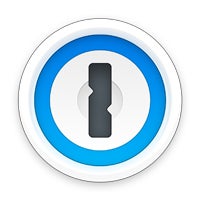
1Password caters to personal, business, enterprise and developer use cases. It is popular for its unique features and well-rounded security. For instance, it generates a 34-character secret key locally on a user’s device, which is added to the user’s account passwords to enhance authentication and encryption. It secures its users’ data in transit using the Secure Remote Password handshake protocol without having to send the data over the internet.
SEE: LastPass Free vs. Premium: Which Plan Is Right for You? (TechRepublic)
Worthy of mention is the fact that 1Password has undergone 19 security audits on its security and features as of May 2023, showing its commitment to regular security checks. For added security against onlookers and browser-based threats, 1Password reveals or fills data only when prompted by the user. There is also a Watchtower feature that allows users to monitor their password health and alerts them when there is any security incident on their account.
Why I chose 1Password
I identified 1Password for its dedication to user privacy and security, as seen with its Fastmail and privacy integration for creating masked emails, as well as its SRP (offline) features. I also chose it as my best overall, as it provides a strong balance between ease of use and high-level security — two features I know former LastPass users will appreciate.
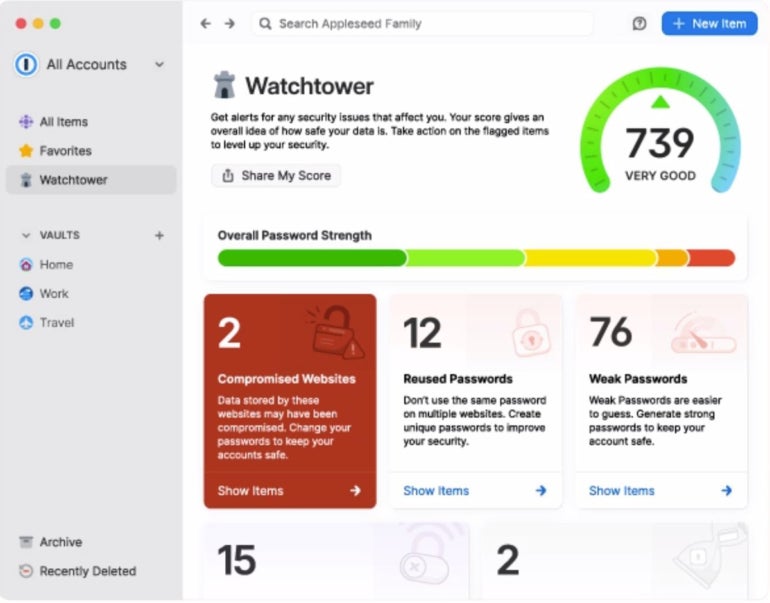
Pricing
1Password comes in five payment plans:
- Individual: $2.99/month (billed annually).
- Families: $4.99/month for five family members (billed annually).
- Teams Starter Pack: $19.95/month for 10 team members.
- Business: $7.99/month (billed annually). Depending on the size of the organization, a custom quote can be requested.
- Enterprise: Quote available on request.
Note: There’s a 14-day trial period on all the plans except for Enterprise.
Features
- Travel mode feature.
- Fastmail and privacy integration for email masking.
- Phishing protection.
- Secrets Automation.
- Clipboard management.
1Password pros and cons
| Pros | Cons |
|---|---|
|
|
If you want to learn more, read our full 1Password review.
Keeper: Best for large businesses

Keeper is a cloud-based password manager with features appealing to both small and enterprise-level businesses. It comes with three major blocks of features:
- Enterprise password management for passwords and metadata protection.
- Secrets management for securing CI/CD pipelines and other critical infrastructure.
- Connection management for secure access (without VPN) to your infrastructure.
Keeper is equipped with AES-256-bit encryption and features a zero-trust and zero-knowledge architecture, all of which contribute to the safety and privacy of personal and business information. Its secure storage capabilities and multiple encrypted vault entries, especially in the business options, make it ideal not only for password security but also for safeguarding large credentials and critical systems.
SEE: 5 Best Password Managers Built for Teams in 2024 (Free & Paid) (TechRepublic)
Keeper recently introduced a passwordless authentication system, offering a better alternative to remembering one’s master password (or forgetting the master password and losing one’s account/vault entirely). With passwordless authentication, biometrics or face recognition can be used to access a password vault.
Why I chose Keeper
Keeper made it to my list because of its advanced security and customizable vault that not only stores passwords but safeguards personal and business sensitive data against cybercriminals.
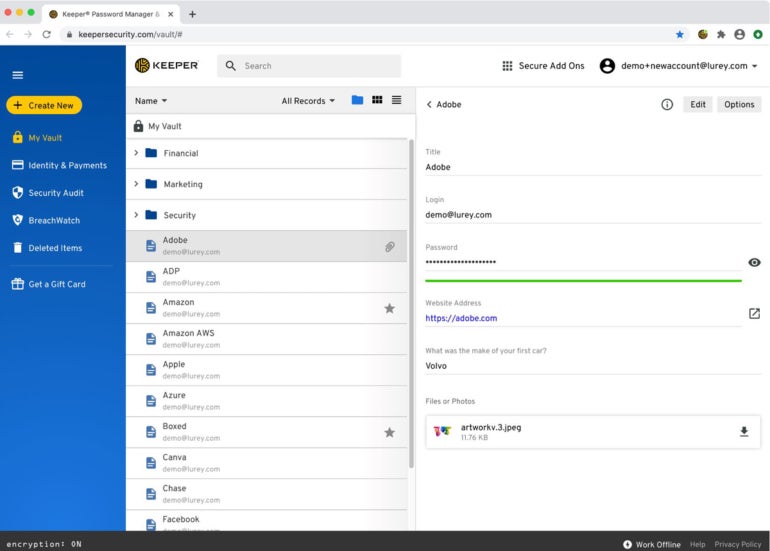
Pricing
Keeper has two subscription tiers.
Personal and family plan
- Personal: $2.92/month and $34.99 billed annually.
- Family: $6.25/month and $74.99 billed annually for five users.
Business plan
- Business Starter: $2/month per user, with 10 users max (billed annually at $24).
- Business: $3.75/month per user (billed annually at $45), ideal for small to medium-sized businesses.
- Enterprise: Contact Keeper for pricing.
There is a 14-day free trial for the Business and Enterprise plans and a 30-day free trial for the Personal and Family plans. Students may be eligible to receive a 50% discount.
Features
- Multi-factor authentication.
- Customizable vaults for its users.
- Connection management.
- Zero-trust and zero-knowledge policy.
- Secrets management.
Keeper pros and cons
| Pros | Cons |
|---|---|
|
|
If you want to learn more, read our full Keeper review.
Dashlane: Best for multi-platform integration and secure sharing

This password management solution powered with PBKDF2 encryption goes beyond securing passwords to making it easy to migrate information from other password managers. It allows you to save your passwords, passkeys and payment information and retrieve it across several devices and platforms. Dashlane’s secure sharing options give you an edge, as you will not only share passwords securely but also have control over the information shared and revoke access given at any time.
When it comes to security, Dashlane has privacy/security features like integrated VPN for Wi-Fi protection, Dark Web monitoring and an activity log that provides a comprehensive view of all actions in an account.
Why I chose Dashlane
I chose this product as the best for multi-platform integration and secure sharing due to its features such as secure cloud sync, browser integration and customizable sharing permissions.
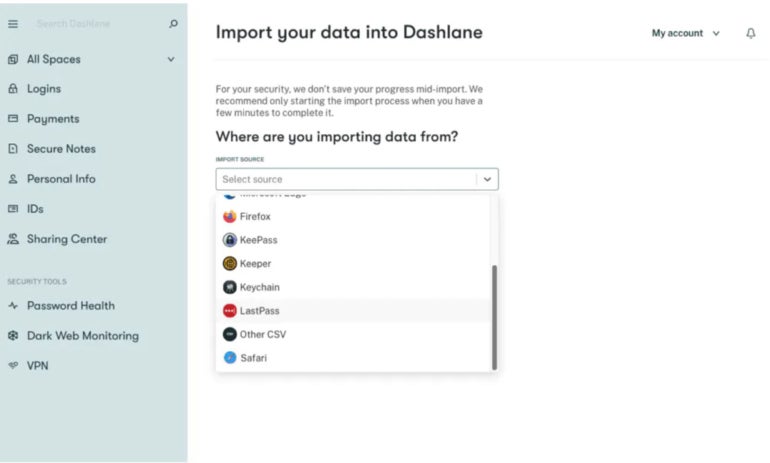
Pricing
Dashlane offers different pricing options for its Personal, Professional and Enterprise plans.
Personal plans
- Premium: $4.99/month for one user (billed annually). Free trial available.
- Friends and Family: $7.49/month for 10 users (billed annually).
Professional plans
- Business: $8/month per seat (billed annually). Offers a free trial period.
- Enterprise: Contact Dashlane for a quote.
Features
- Dark Web monitoring and alerts.
- Strong password generator.
- Confidential SSO & Provisioning (SCIM) integration for easy user provisioning.
- Cross-platform compatibility.
- Real-time phishing alert.
Dashlane pros and cons
If you want to learn more, read our full Dashlane review.
Bitwarden: Best free, open-source password manager

Bitwarden is an open-source password manager with source code currently hosted on GitHub for public view. It boasts quality encryption with AES-CBC 256-bit encryption for vault data and PBKDF2 SHA-256 or Argon2 for your encryption key.
What sets Bitwarden apart from its competitors is the fact that users can enjoy its core functions, access and synchronization on unlimited devices, passkey management and data breach scanning, as well as run the password manager on personal servers — all using the free version.
The highly affordable paid tier offers much more, such as emergency access and hardware security key authentication, for $10 a year. Bitwarden also stands out with its broad compatibility, offering dedicated apps for different operating systems and platforms like Windows, macOS, Linux, Android and iOS. Again, it extends its integration beyond conventional browsers like Chrome and Firefox, accommodating Brave, Vivaldi and Tor.
Why I chose Bitwarden
Bitwarden made it on my list for its outstanding free version that has core functionality and the safety associated with the third-party security audits done on its open-source software.
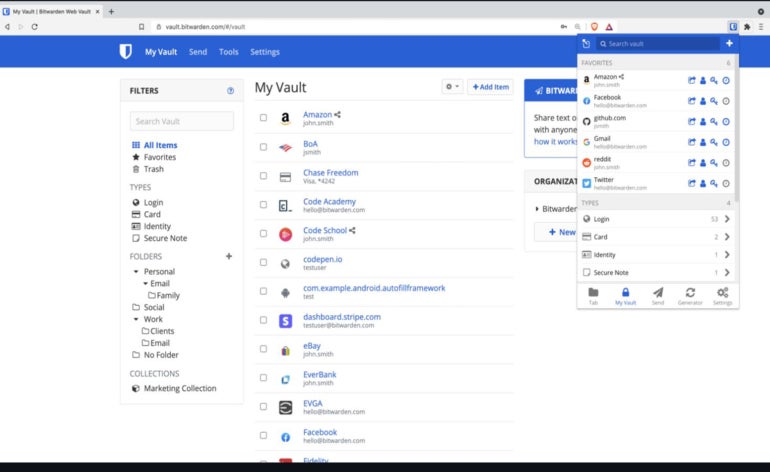
Pricing
This solution offers two main pricing categories.
Personal plans
- Free: Lifetime free version.
- Premium: Less than $1/month for a single user (billed annually at $10).
- Families: $3.33/month for a family of six (billed annually at $40).
Business plans
- Teams: $4/month per user.
- Enterprise: $6/month per user (best for larger organizations).
- For organizations with over a hundred or thousands of employees, contact the Bitwarden sales team to get a quote.
Note: The Families, Teams Starter and Enterprise plans have a 7-day trial period.
Features
- Bitwarden Send.
- Password strength and vault health monitor.
- Open-source architecture.
- Desktop app.
- End-to-end 256-bit-AES encryption.
Bitwarden pros and cons
| Pros | Cons |
|---|---|
|
|
If you want to learn more, check out our full Bitwarden review.
NordPass: Best for user-friendly design and cross-browser compatibility

NordPass is a password manager created by Nord Security — the same company that developed NordVPN. The solution offers passwordless sign-in, passkey and multi-factor authentication, which are keys to easy login to user accounts. NordPass supports multiple identity provider integrations such as Okta, Entra ID, Google Workspace and MS ADFS. Its emergency access feature makes it seamless to use, even in emergencies when the user is not with their device.
NordPass notably stands out for its XChaCha20 encryption, which is considered more advanced encryption than the AES-256-bit. Other perks of using NordPass are its cross-browser compatibility and hassle-free sync across devices, plus its VPN integration.
Why I chose NordPass
I picked NordPass for its modern user-friendly interface as well as its seamless synchronization across devices and quality browser accessibility.
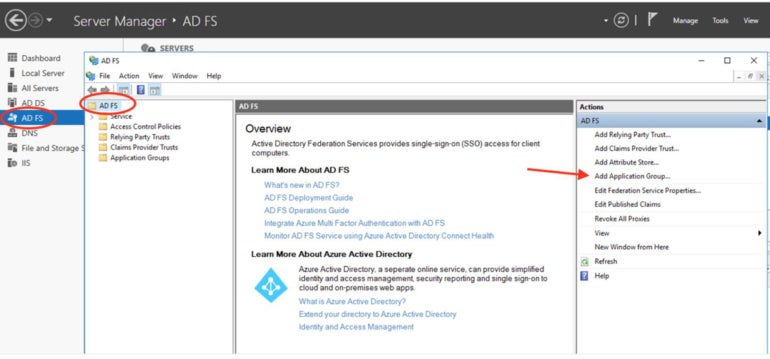
Pricing
NordPass offers Personal & Family and Business plans, each with one-year and two-year billing options.
Personal & Family plans
- Free: Always free.
- Premium: $1.99/month (1 year billing) or $1.69/month (2 years billing) for one user.
- Family: $3.69/month (1 year) or $2.79/month (2 years) for six users.
Business plans
- Teams: $1.79/month per user (2 years) or $1.99/month per user (1 year). Available for 10 users.
- Business: $3.59/month per user (2 years) or $3.99/month per user (1 year). Available for 5–250 users.
- Enterprise: $5.39/month per user (2 years) or $5.99/month per user (1 year) for unlimited users.
Features
- Cross-device and browser accessibility.
- Passwordless passkeys.
- Multi-factor authentication.
- Data Breach Scanner.
- NordPass Authenticator.
NordPass pros and cons
If you want to learn more, check out our full NordPass review.
ManageEngine Password Manager Pro: Best for enterprise password security

ManageEngine packs a punch with commendable enterprise password management features. For starters, the tool facilitates automatic password resets for servers, databases, network devices and other resources using its periodic password rotation feature to eradicate old or weak passwords.
It also helps enterprises consolidate all their passwords in one secure, centralized repository, reducing the proliferation of privileged accounts in enterprises. The solution uses the AES-256 encryption protocol and secures data at both the database and application levels. Enterprises can also leverage ManageEngine’s password grouping feature to de-clutter and group their password database based on enterprise requirements.
Why I chose ManageEngine
ManageEngine PM pro carved its name on my list for being the best in business/enterprise security with its notable features like periodic password rotation, release-access workflow and its centralized vault.
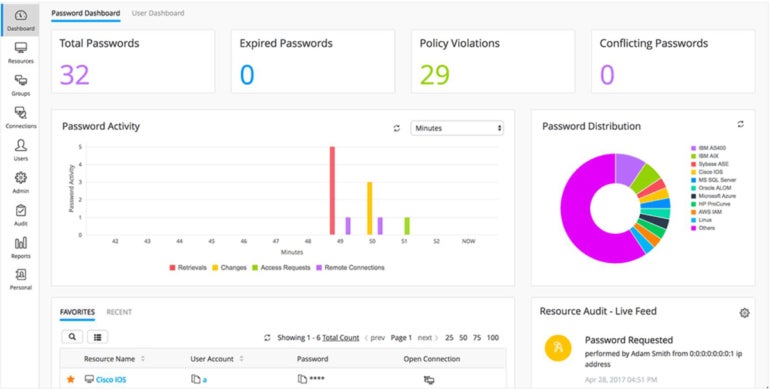
Pricing
ManageEngine has a 30-day free trial, two tiers for organizations or the option to receive a quote.
Subscription
- Standard: Starts at $595 for two administrators.
- Premium: Starts at $1,395 for five admins.
- Enterprise: Starts at $3,995 for 10 admins and 25 keys.
Perpetual
- Standard: Starts at $1,495 for two administrators.
- Premium: Starts at $3,595 for five admins.
- Enterprise: Starts at $10,195 for 10 admins and 25 keys.
Features
- Application-to-application password management.
- Periodic password reset.
- Active Directory and LDAP for onboarding.
- Centralized password vault.
- Privileged access governance.
ManageEngine Password Manager Pro pros and cons
| Pros | Cons |
|---|---|
|
|
If you want to learn more, check out our full ManageEngine Password Manager Pro review.
Best LastPass alternatives according to Reddit
To get a glimpse of real-world feedback, I went ahead and looked on Reddit to see which password manager is considered the best LastPass alternative by users all around the world.
Per my research, many users felt that 1Password was a quality replacement, particularly highlighting its easy-to-use application and reliable autofill capabilities. One noteworthy feature mentioned was 1Password’s Secret Key, a personalized 34-letter and number key that acts as an additional factor to access your 1Password vault. It acts as an encryption key that’s created on each user’s device locally, ensuring that not even 1Password has access to or a copy of it.
SEE: How to Start a Career in Cybersecurity (TechRepublic Premium)
Bitwarden was another commonly mentioned alternative, with people praising it for its open-source architecture and self-hosting capabilities. It’s also well-liked for providing premium features, even on its fully free version.
An unfortunate observation I had while researching is the sheer number of Reddit forum posts looking for LastPass replacements. In my opinion, it just goes to show how popular LastPass was and how regrettable it was for the service to have data breaches.
That being said, I don’t blame users one bit. With data as important as passwords, any sort of leak or vulnerability is a good enough reason to jump ship — much less an actual data breach.
How to choose the best LastPass alternative for your business
The choice of an alternative to LastPass depends on your password management solution needs as an individual or a business. If a breach-free history, full functionality for a free version and cross-platform and cross-browser compatibility are among your needs, then you should consider any of the abovementioned alternative solutions.
See our full review of LastPass to compare.
Methodology
While there are tens of possible alternatives to LastPass, I narrowed it down to these six due to their rich features that cater to individual, business and enterprise users. Apart from Bitwarden, which I currently use on my Windows laptop, I had firsthand experience using free versions and browser extensions of the tools on my laptop, iPad and Android phone (Samsung A53). My focus was to check for compatibility across these devices and compare user interfaces, password strength, autofill and password vaults.
I also considered verified user reviews to understand how real users interact with the products as well as gathered pricing information from each product’s website.





